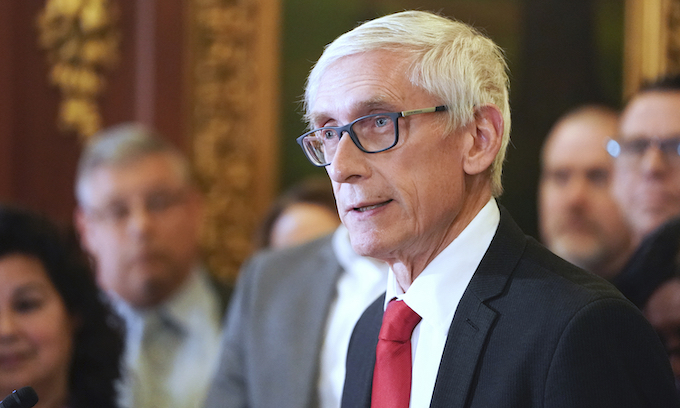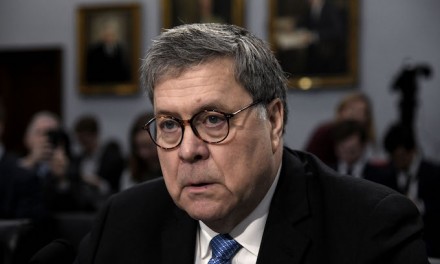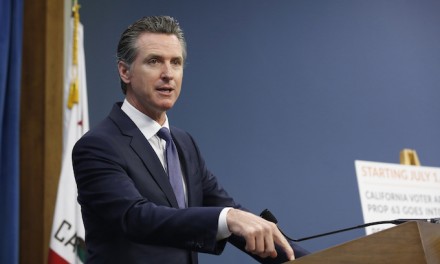Milwaukee Public Schools leaders asked Gov. Tony Evers — without success — to activate the National Guard to drive students to school, a sign that the shortage of school bus drivers remains a crisis.
Now, as MPS students continue to be stranded on a daily basis by buses that never show up, or show up hours late, the district is planning to pay families to drive their own kids to school.
“We’re turning over every rock and stone we can to try and solve this problem,” said School Board President Bob Peterson.
A spokesperson for Evers said the governor had a discussion with Peterson but they were both provided a memo by the Wisconsin Legislative Council advising that Evers likely currently lacked the power to activate the Guard.
Under state law, the governor may only activate the Guard for state duty in certain situations, including natural disasters, war and insurrection, and public health emergencies. The Wisconsin Legislative Council concluded public health was the only reason that might apply, but it would require a state of emergency declaration. No such declaration exists, and it’s unlikely Evers could declare a new state emergency, the council concluded, given the Wisconsin Supreme Court’s decision against his attempt to renew the state of emergency related to COVID-19.
“Wisconsin law does not allow the Governor to call National Guard members to state active duty solely for the purpose of helping schools address a labor shortage,” wrote David Moore, senior staff attorney for the Legislative Council.
A spokesperson for Evers, Britt Cudaback, said the governor and his staff have talked to many people concerned about the driver shortage. Cudaback said Evers “remains committed to continuing those conversations and working together toward long-term solutions to these challenges.”
Problems also have hit suburban Milwaukee districts. Driver shortages have caused problems getting athletic teams to games and student organizations to competitions and events on time. In some cases, the shortages have affected regular morning and afternoon bus routes. At some schools, planned field trips are in jeopardy.
Milwaukee is far from alone in struggling with school busing needs. Peterson said the MPS request was following the lead of Massachusetts, where the governor called in 250 National Guard personnel to drive vans of students to school. Ohio schools have made the same plea.
The strategy of paying parents to get their children to school also has been tried elsewhere. Baltimore schools offered parents a $250 stipend to get their own children to school for the month of September.
In a Milwaukee School Board meeting Thursday, administrators said they had yet to figure out how much they would pay families, how many families would be offered the payments and how those families would be chosen. They said the program could begin in early October.
Children out for extended periods
The bus driver shortage became clear as soon as MPS students returned from virtual learning last spring. Bus drivers had been laid off during the pandemic and many never returned.
On the first day back to in-person school for the first students invited back April 14, the district was 60 drivers short with only a fraction of its student population attending in person.
The problem worsened this fall with more students returning to their schools. On the first day back for 40 out of about 150 MPS schools, at least 700 students were not picked up on time or at all as the district was short 80 drivers.
MPS contracts with six companies for busing. Company managers have said they are aggressively recruiting drivers and offering signing bonuses up to $2,500. At First Student and Wisconsin Central, wages start at $19 to 23 per hour for drivers without experience.
It’s unclear how many students continue to miss school or arrive late each day, in addition to disrupting work schedules for family members or others who may step in to transport them.
David Solik-Fifarek, MPS director of business and transportation services, said the district has cut 200 buses from its fleet in September after bus companies failed to recruit drivers for them. He said the district is still short 50 drivers, while drivers are packing in more stops on each route and often running late.
Among the students being left behind are many with disabilities who are supposed to be guaranteed busing services according to their individualized education plans with MPS. Solik-Fifarek said about 20% of routes that have had challenges are those serving students with special education services.
On Monday, students were robbed outside Rufus King International High School while waiting for a bus, according to Milwaukee police and a letter to families from Principal Phyllis Anderson. A spokesman for MPS would not say whether the bus was running late, citing safety concerns about sharing bus times.
Solik-Fifarek said the district has provided some alternatives for families. It has used a “sweeper service,” assigning some bus drivers to pick up students on routes that lack a regular driver, noting there have been “persistent issues that we know have kept kids out of the building for extended periods of time.”
Some problems have been more sporadic, as drivers have increasingly been absent at work due to illness, quarantine or other issues.
Solik-Fifarek said the district aims to notify families of problems by 6:45 a.m., the time of the first round of pickups. They ask those families to find another way to get children to school. If that’s not possible, the bus companies will sometimes send another bus later in the morning, sometimes as late as 9:30 a.m., he said.
The district also used robocalls and messages to survey families about whether they use the bus. Out of about 33,000 messages sent, most people did not respond while 8,000 said yes and 3,340 said no and were then removed from the rolls.
Some parents told the Journal Sentinel they were unsure how to answer the survey as they had not used school buses because school buses weren’t coming, but they did wish to use them.
The district has also enforced a decision made before the pandemic to cease school bus services for high school students who live more than seven miles from their schools. Those students were offered county transit bus passes and some were able to get exceptions. Solik-Fifarek said 3,100 students are now using county transit.
Single bus tickets have also been distributed to schools for students whose school buses don’t pick them up at the end of the day, Solik-Fifarek said.
Alec Johnson of the Journal Sentinel staff contributed to this report.
© Copyright 2021 Journal Sentinel, All Rights Reserved.
—-
This content is published through a licensing agreement with Acquire Media using its NewsEdge technology.



















Maybe use some of that Federal Money you receive to increase the pay for Bus Drivers.
IT won’t matter how much they pay. IF THEY KEEP PUSHING the bull that you must get shot, or get fired, FOLKS WON’T SIGN UP.
What about taking city/county buses and drivers and have them get the kids to school? When I went to school I either walked or when the school was further took the city bus.
I’m floored that the school district is planning to pay families $250 a month to get their kids to school. That’s a lot of cash for something that ought to be a parent’s responsibility.
The fact that MPS is forcing all employees to be vaccinated or lose their job isn’t going to help.
Many parents already Drive their kid(s) to schoo.l.. SO WHY SHOULD THEY BE PAID FOR IT?
The unintended consequences of the socialist system of governmment, eventually varying edicts begin to overlap and conflict with one another leaving the general population wondering, WHO’S IN CHARGE!
Home school. No bus.
So let me get this straight… these morons are going to take the money by force from the taxpayers … then give it back to them (I’m sure after they skim off the top of the funds) so they can safely drive their children to the indoctrination camps. Yep… sounds about right! Expect nothing less.
Sounds right.. TAXATION IS theft!